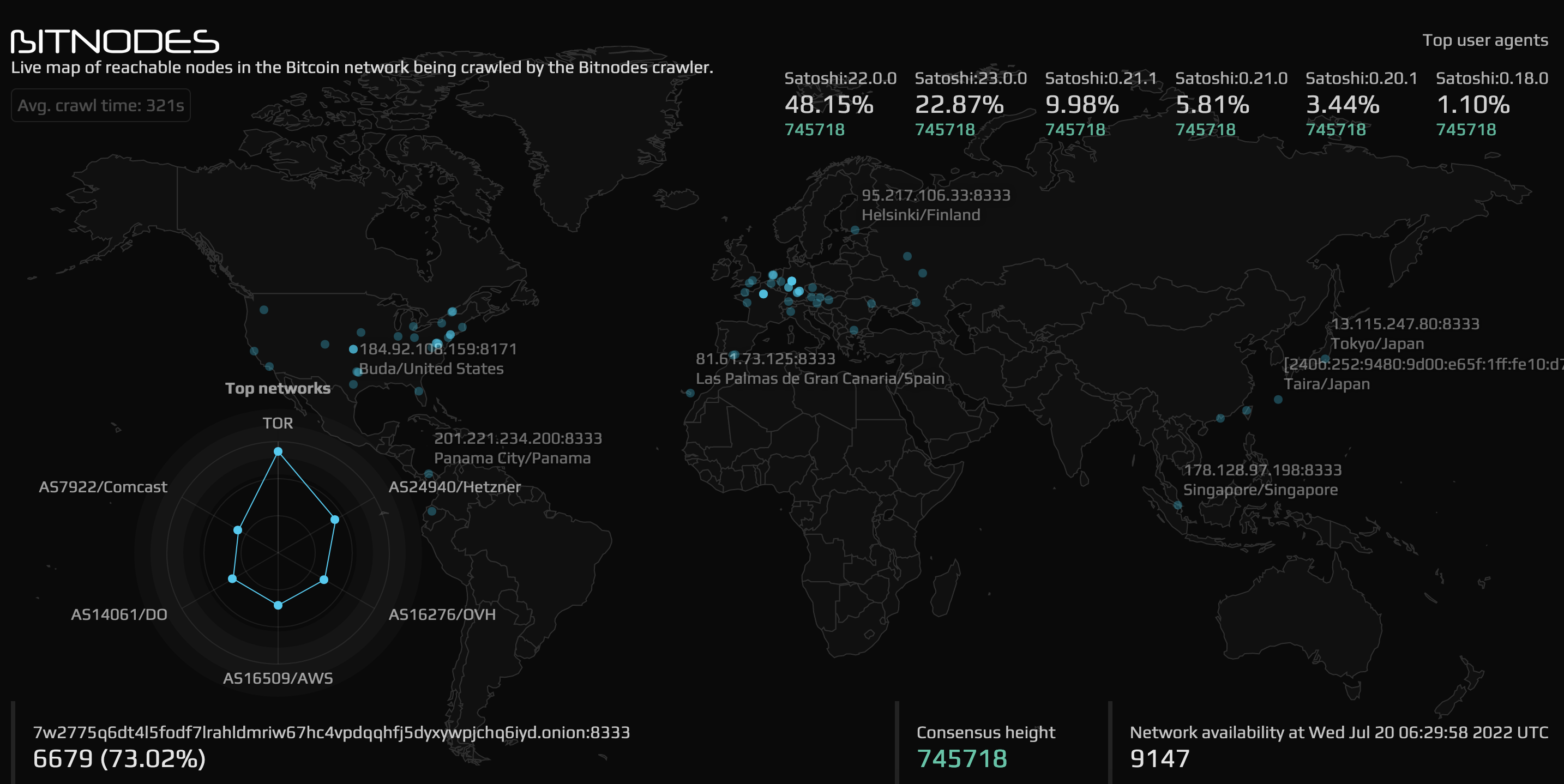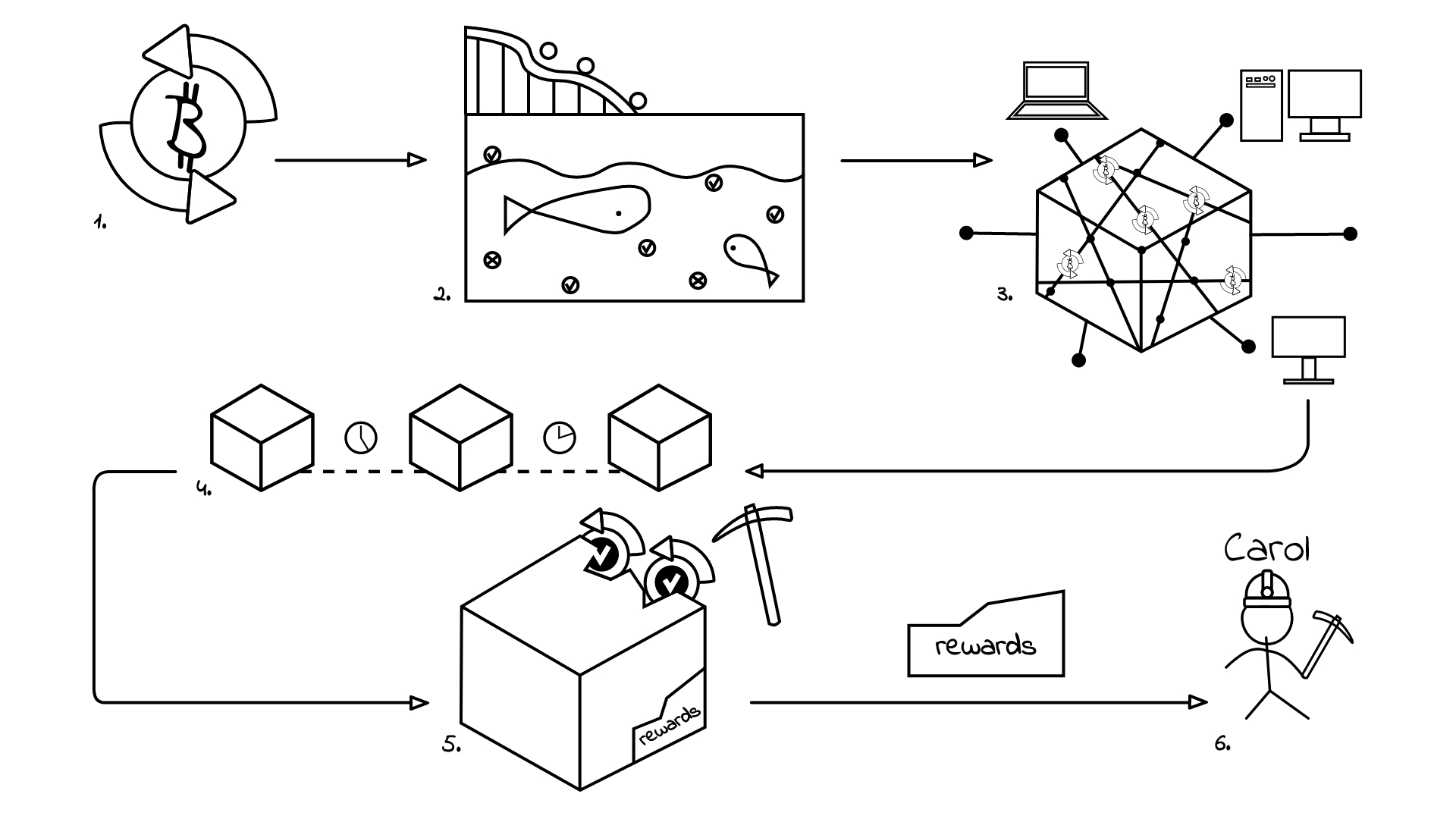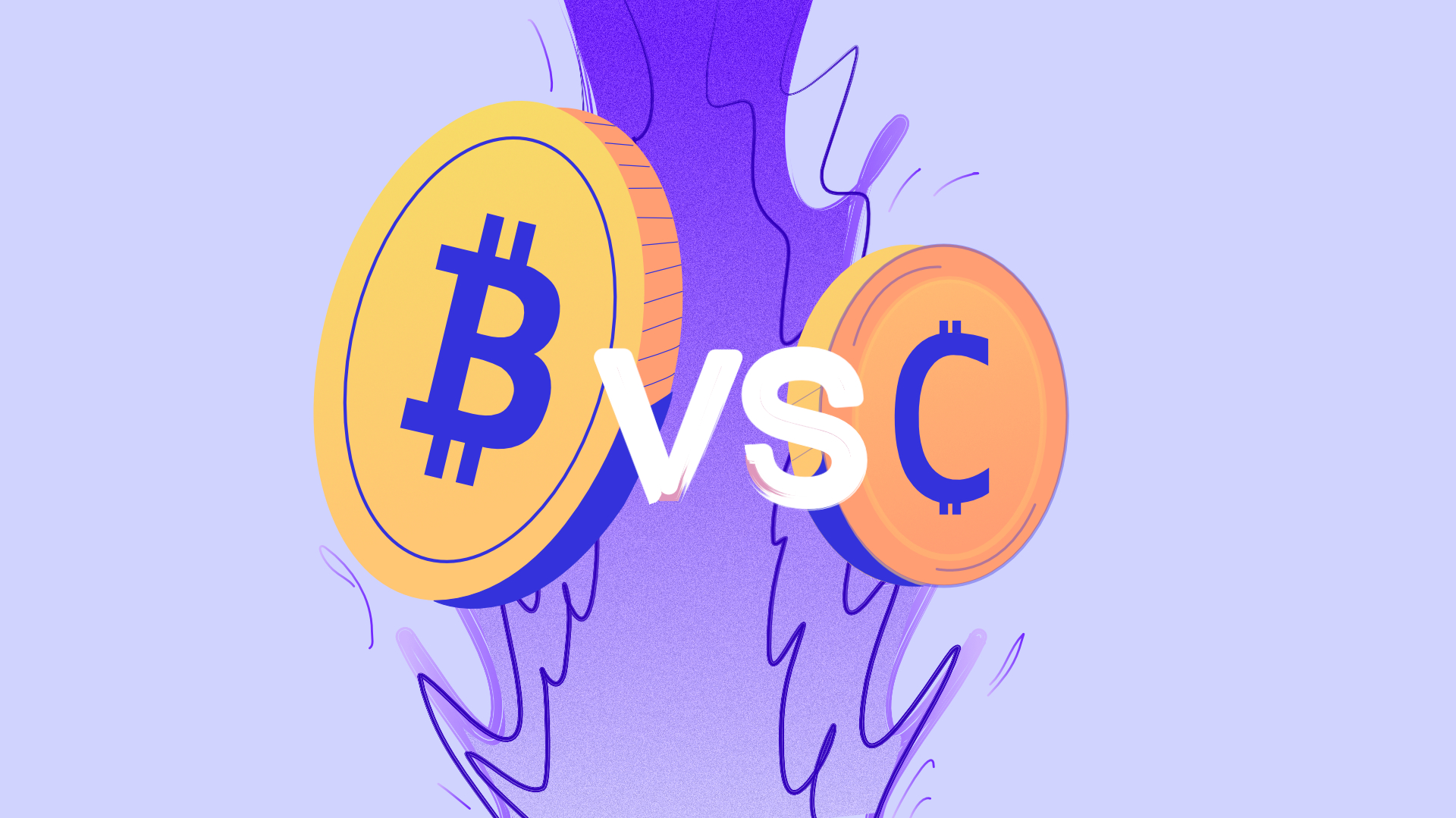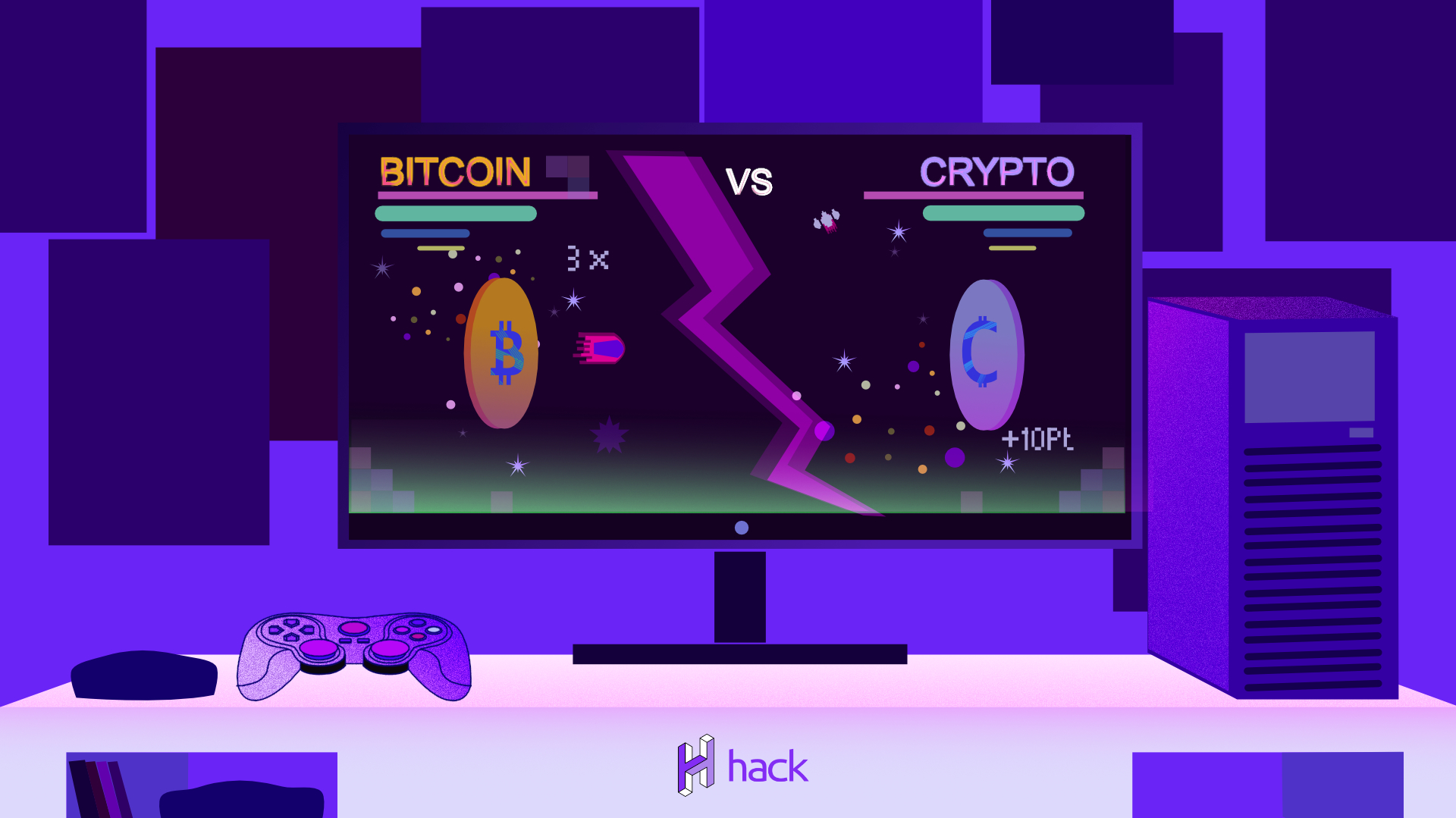Many cryptocurrencies operate behind thin veils of decentralization. In public, they’re sold on the premise that they distribute power and transparency. Behind the curtains – leaders pull the strings.
Many projects secretly pay influencers to shill their tokens. The price pumps. Insiders dump. Naive investors lose money.
Many cryptocurrencies are mere scams — some, proudly pyramid-shaped. Market participants treat these as facts of life, with oft-used terms for exit scams (“rug pulls” like liquidity stealing, limiting sell orders and dumping) and pyramid-shaped projects (“Ponzis”).
To many cryptocurrencies look the same – as tomatoes pasted in the supermarket — only tasteless, useless, and more numerous. The cynical see the menu of cryptocurrencies as a proxy most-wanted list, all promising:
- decentralization;
- transparency;
- security;
- fairness ;
- censorship-resistance;
- best consensus mechanism
Yet one item on the menu stands apart.
Bitcoin is arguably one of the most important technological advances since the creation of the internet, itself because Bitcoin is a quiet protest against the status quo, ayas the altcoins are not!
This is one article written from the perspective of those who wish to remain sovereign in body, mind, spirit and wallet.
Bitcoin Is A Leaderless System Of Rules – Not Rulers
Is it possible for a monetary system to run without leaders?
Currently, our monetary system is operated by a group of people who make decisions based on their assessment of what is happening and on predictions of what may or may not happen in the future.
When it comes to other cryptocurrencies, the issuance is decided by a group of people who are susceptible to greed and coercion and not necessarily based on a fixed schedule.
Bitcoin’s issuance is predetermined, based on code and transparent for anyone to see. Anyone who runs a node has complete freedom to question and advise on the rules they wish to follow. Should some influencer want to change the Bitcoin code to become proof-of-stake, he is free to do so, but my node will continue to run the current code. Everyone who runs a node is an equal participant and it doesn’t matter if they have 1 million bitcoin or 1 satoshi.
One of the most incredible things that the pseudonymous creator of Bitcoin, Satoshi Nakamoto, ever did was to disappear after launching the protocol. It means that there is no single person to physically come after or attempt to persuade a change in the protocol.
Bitcoin is a system of rules, not rulers.
Rules-without-rulers is a feature that distinguishes bitcoin from all other money systems, and this feature alone may represent the main reason why bitcoin has obtained value in the first place.
Bitcoin Is Actually Decentralized
Decentralization is a much-overstated buzzword that is an untrue property of the majority of crypto projects that claim it. Decentralization is important for people who believe world powers are working in conjunction to limit freedoms and mandate measures that deny autonomy. It matters because it makes a system antifragile in a hostile environment.
If a protocol is truly decentralized, then it can withstand attacks from antagonistic governments or military forces. This is what happened when China banned Bitcoin mining and the network continued to operate producing blocks and processing transactions. A combative government tried to shut down Bitcoin, and it stayed online — as intended.
Some say decentralization is a spectrum. I disagree; something is either decentralized or it is not. If your blockchain can go offline for hours, or just be shut off to give developers uninterrupted time to fix it, then it isn’t decentralized, simple as that. If it isn’t decentralized, your money is susceptible to the inclinations of internet service providers. Bitcoin is actually decentralized because its hash power is distributed across the globe and copies of its ledger are similarly spread throughout the world through users who run full nodes 24/7.

Bitcoin Is Censorship-Resistant
Another one of Bitcoin’s important features is freedom of speech. The last few years saw numerous attacks on free speech, including an on-duty President, being permanently banned from Twitter, doctors losing their licenses for sharing information about COVID-19 that didn’t fit with the government’s narrative, and Canadians having their bank accounts frozen for donating to a cause that was deemed unacceptable.
Considering money as speech under the law (the Supreme Court famously held that money is, indeed, speech), it is imperative that it cannot be frozen or stopped for any reason. Bitcoin fits that bill.
Not all cryptocurrencies are censorship-resistant, tho. The Ethereum blockchain had an exploit in a decentralized autonomous organization (DAO) in 2016, which resulted in a 150 million-dollar hack and the code being hard-forked in order to pretend the money was never stolen. If the code can be changed to pretend a hack never happened, it can be changed to prevent certain transactions from going through. For example, the most widely used Ethereum wallet and the biggest NFT platform, MetaMask and OpenSea respectively, blocked users from Iran and Venezuela from using their platforms because the countries are on the U.S. sanctions list. Similarly, MetaMask and Infura (both linked to Ethereum infrastructure) blocked unspecified areas of the world due to a concern about legal compliance. If people are limited from accessing their money, they are limited in their freedom of speech. Bitcoin, on the other hand, is censorship-resistant.
Bitcoin Is Issued Based On Proof-Of-Work
Other cryptocurrencies that operate based on a proof-of-stake (PoS) consensus mechanism are able to have the code changed by those with the most amount of money “staked”. This sounds eerily familiar to the way governments operate today, with Big Pharma, Big Agriculture, Big Tobacco and other “Bigs” businesses using their deeply lined pockets to lobby politicians for the changes they wish to see enacted for their benefit. Bitcoin’s proof-of-work algorithm means that each player is an equal participant in the network. You can find more about “What is Bitcoin?” in our guide.

By tying Bitcoin issuance to the energy market, however, bitcoins become fairly and widely distributed. Most people around the world have access to electricity, which could be used to mine bitcoin if so chosen. Because Bitcoin uses energy, it allows the value it creates to be distributed fairly by anyone who is using energy to mine it, while securing the history of transactions by seizing them onto the blockchain. Using electricity means that miners have to sell some of the earned bitcoin in order to pay for energy costs, which further distributes the bitcoin.
Ultimately, proof-of-work (PoW) is what separates Bitcoin from other cryptocurrencies and gives it an advantage over government or centrally planned money.
Bitcoin Is Scarce
Unlike other assets that cannot be audited, Bitcoin is extremely easy to audit. For users that run a full node, there is the command gettxoutsetinfo that tells anyone who runs it exactly how much bitcoin there is in circulation, as well as other relevant information about the Bitcoin blockchain — such as the estimated size of the blockchain, etc. This command is one of the things that set the bitcoin asset apart from other cryptocurrencies. Its users don’t have to trust the calculations of other people to determine a foolproof circulating and total supply of the asset.
Some supporters of other cryptocurrencies may claim that a hard-capped supply is not the main marker of utility. They may insist that their cryptocurrency of choice has more things built on top of it. In response, one must think of architectural design when building on top of alternative blockchains. It is impossible to build a robust, resilient, decentralized system on a centralized platform. It simply won’t be decentralized.
Bitcoin’s hard-capped supply of 21 million bitcoin is one of the main innovations of Bitcoin. No one can change this limit. If they do, anyone who runs a node can (and will) choose to keep running the true Bitcoin codebase. Until Bitcoin’s creation, there had never before been true digital scarcity, before.
Bitcoin Requires Personal Responsibility
Apparently, one of the arguments in the cryptocurrency discussion that was the inspiration for this article was that there will be some type of wealth redistribution by whomever takes down the one world government in the future. I hate to be the bearer of bad news, but the wealth redistribution is already happening and it’s Bitcoin. Everyone feels late when they first get into Bitcoin, but we are still so early. Though the rate of global adoption is extremely hard to quantify, data by Chainanalysis show that the majority of the world has still not adopted cryptocurrency in a significant way.
Bitcoin is a newer way of engaging with financial sovereignty; it requires you to take full ownership of your assets, which can be frightening for some because there is no entity to help you if you lose access to your private keys.
Luckily, there are many services that provide alternative means of custody, such as Casa or Unchained. These companies support customers who may be ready to take ownership of their private keys, but want a backup, just in case. Though there are ways to alleviate some of the pressure of needing to be completely responsible for all of your assets, Bitcoin requires a high degree of personal responsibility.

Conclusion:
Bitcoin means different things to different people.
Some people focus on mining, some focus on building software and hardware wallets. Some people focus on developing on top of the Bitcoin stack, some focus on HODLing, and some crazy people focus on day-to-day trading (don’t be one of those people!). Some people who love bitcoin are carnivores and some are vegan. Some people who love bitcoin are into jazz and 3D printing, some people focus on renewable energy, and others enjoy focusing on politics.
The contrast between bitcoin and other cryptocurrencies does not hinge on the differences in their utility but on the ethos of their users and what it stands for – Bitcoin has a mission.
Bitcoiners are here for a peaceful, monetary revolution to create a brand new society without any rulers in a way that’s never been done before and not just mint some monkeys on a blockchain and make a quick buck.
The more time one spends in the crypto space, the easier it is to notice the major differences between the two groups.
If you one day make the choice to purchase bitcoin, you are deciding to participate in the most globally impactful technological and monetary revolution for freedom in an entirely peaceful way and FEW.



